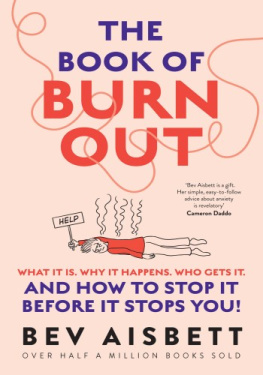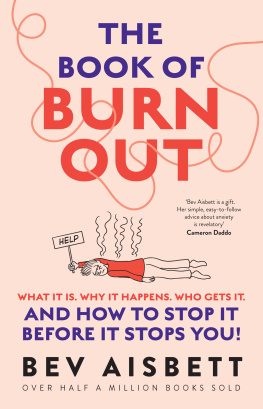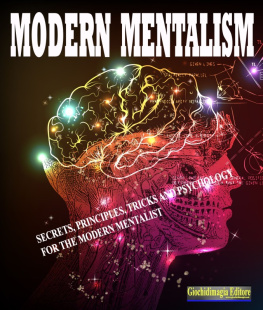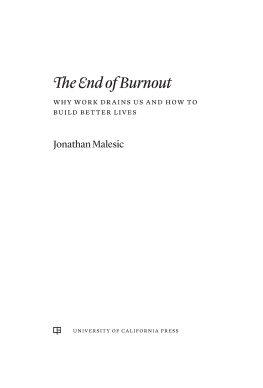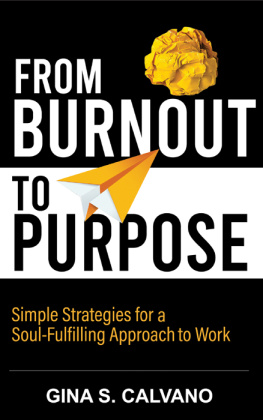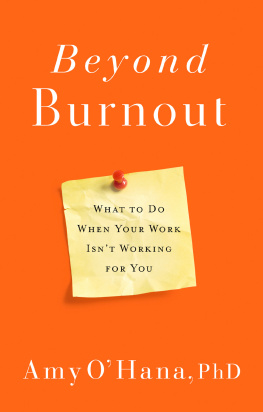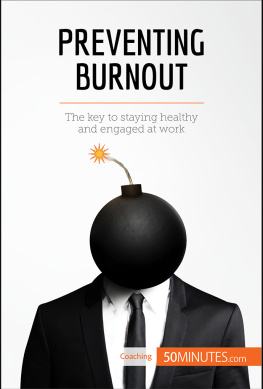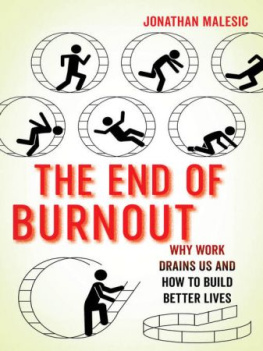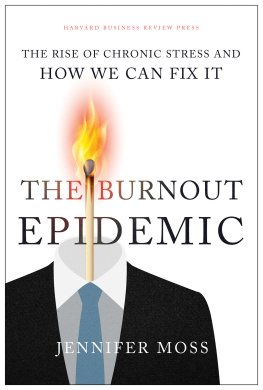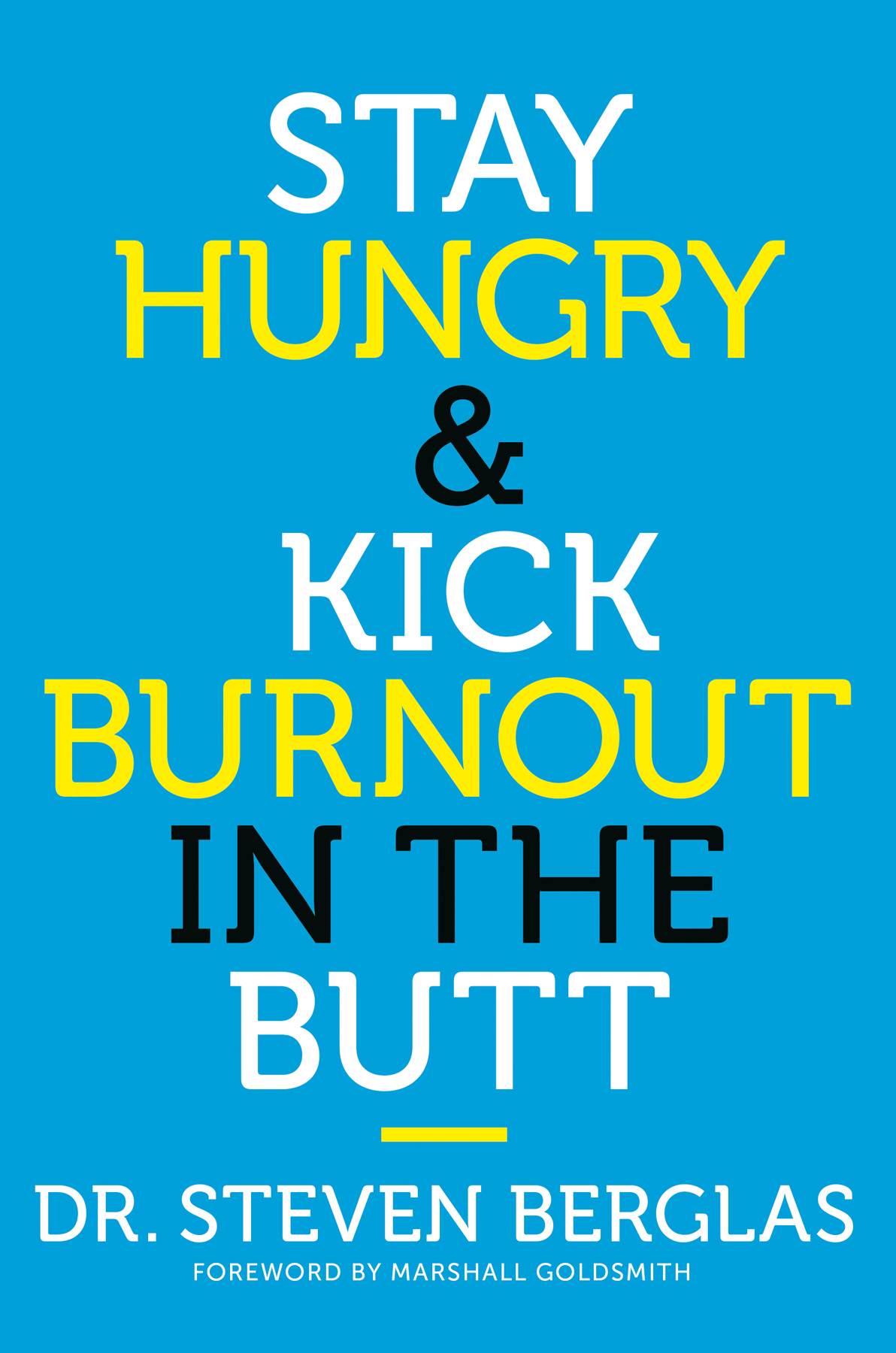Thank you for buying this ebook, published by HachetteDigital.
To receive special offers, bonus content, and news about ourlatest ebooks and apps, sign up for our newsletters.
Copyright 2018 by Steven Berglas, PhD
Cover design by Edward A. Crawford
Cover copyright 2018 by Hachette Book Group, Inc.
Hachette Book Group supports the right to free expression and the value of copyright. The purpose of copyright is to encourage writers and artists to produce the creative works that enrich our culture.
The scanning, uploading, and distribution of this book without permission is a theft of the authors intellectual property. If you would like permission to use material from the book (other than for review purposes), please contact permissions@hbgusa.com. Thank you for your support of the authors rights.
Center Street
Hachette Book Group
1290 Avenue of the Americas, New York, NY 10104
centerstreet.com
twitter.com/centerstreet
First edition: September 2018
Center Street is a division of Hachette Book Group, Inc.
The Center Street name and logo are trademarks of Hachette Book Group, Inc.
The publisher is not responsible for websites (or their content) that are not owned by the publisher.
Scriptures taken from the Holy Bible, New International Version, NIV. Copyright 1973, 1978, 1984, 2011 by Biblica, Inc.TM Used by permission of Zondervan. All rights reserved worldwide. www.zondervan.com The NIV and New International Version are trademarks registered in the United States Patent and Trademark Office by Biblica, Inc.TM
Scriptures marked KJV are from the Holy Bible, King James Version.
Library of Congress Cataloging-in-Publication Data
Names: Berglas, Steven, author.
Title: Stay hungry & kick burnout in the butt / Dr. Steven Berglas.
Other titles: Stay hungry and kick burnout in the butt
Description: First Edition. | New York : Center Street, [2018] | Includes bibliographical references and index.
Identifiers: LCCN 2018011994| ISBN 9781478921493 (hardcover) | ISBN 9781549194559 (audio download) | ISBN 9781478921509 (ebook)
Subjects: LCSH: Job satisfaction. | Motivation (Psychology) | Career development.
Classification: LCC HF5549.5.J63 B447 2018 | DDC 650.1dc23
LC record available at https://lccn.loc.gov/2018011994
ISBNs: 978-1-4789-2149-3 (hardcover), 978-1-4789-2150-9 (ebook)
E3-20180727-JV-PC
The Success Syndrome:
Hitting Bottom When You Reach the Top
Self-Handicapping:
The Paradox That Isnt
Your Own Worst Enemy:
Understanding the Paradox of Self-Defeating Behavior
Reclaiming the Fire:
How Successful People Overcome Burnout
In loving memory of my father, Jerome K. Berglas:
Ancora imparo.
One of the most popular current dictums in career and lifeoften attributed to Confucius, though many others have been credited with similar words over the yearsis that if you find a job you love, youll never work a day in your life. The idea is that when you are fully engaged in the work you do, it wont seem like work at all. Indeed, it will be so fulfilling that work and life will be forever intertwined in one long and happy continuum. Your job will be your life, and it will lift your spirits and fulfill you in ways that most of us could never imagine possible.
What happens, however, is that when you start a job you like it just fine, but over timenot too long a time for mostyou find yourself dreading the commute to work in the morning, or you notice that you cannot wait for 5:00 p.m. to arrive so you can leave your workplace as far behind as possible. Sure, some folks stay late, but youre not one of those drudges. You wanted uplifts from that job, youre not getting them, so all you want now is out. This feeling, by the wayfeeling so psychologically empty that you can barely functionis not limited to the office; you notice that it has encroached upon your personal life as well.
Now what do you do?
In his very insightful book, Steven Berglas turns the conventional wisdom of work and career on its head, taking the reader on a thought-provoking journey through the psychology of what brings us happiness in our work and why its so difficult for most of us to avoid succumbing to career burnout. We all know people whose work has made them utterly miserable, relegating them to the never-ending hell of being trapped in golden handcuffs. They have tried switching jobs beforeprobably several timesonly to end up depressed, dejected, and totally distressed once the honeymoon period ends, and asking themselves, Why bother? I have seen it in my own coaching practice: executives and managersall very smart, all very hardworkingwhose careers have crushed their spirits and left them wanting to do anything other than what they were doing before a job they loved failed to give them the emotional rewards they expected it would.
Research shows that 80 percent of all workers feel stress on the job, 40 percent report that their job is either very stressful or extremely stressful, and 25 percent consider their jobs to be the number one cause of stress in their lives. All this stress takes an enormous toll on the people who feel it, and on the organizations that employ them. Stress on the job can result in relatively mild physical ailments such as fatigue, headaches, back pain, nausea, and frequent colds, but it can also be deadly, leading to high blood pressure and heart attacks. Its estimated that stress costs US companies more than $300 billion a year.
These numbers make it abundantly clear that while most of us, once or several times, have found a job we thought we could love, our faith in the contention that finding a job we love will lead to achieving happiness is specious at best. My own work tells me this is the case for most people. Many of us have jobs that we enjoy, perhaps even love, yet we are more distressed than we can imagine, and we fear we are descending into a state of burnout.
One cause of this problem, according to Steve, is that even the most rewarding work or career inevitably loses its power to reward us over time. Its not unlike a marriage where the excitement of passionate love begins to wane soon after the honeymoon has ended, in many cases culminating in divorce (the seven-year itch is very real, with the majority of divorces taking place seven years after couples are married). We may have the greatest career, working for the best company, but we will eventually sense that the highs we enjoyed while we grew into that career are no longer there and our happiness has evaporated, only to be replaced by feelings of being burned out.
In his work coaching many of todays top executives, Steve has observed that business leaders often struggle to come to terms with questions of their own shortcomings. Facing them requires vulnerability, which is especially difficult for people who are used to being out front and showing strength. Yet vulnerability and humility are often the difference between a good leader and one who knows true greatness. Thats why it is so important that leaders are willing to concede their shortcomings and realize there is always more to learn. They must question themselves, and then question themselves again.
In this remarkably powerful work Steve provides readers with a framework for understanding why they are unhappy in their work and careers and exactly what they can do to find happiness. According to Steve, the ultimate path to happiness in work and career is to adopt a mind-set of


